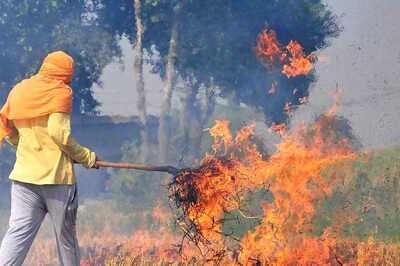
views
United Nations: India has said discussion on climate change in the Security Council is a welcome step, but maintained that the 15-member body does not have tools to deal with the issue.
Following a day-long debate in the Security Council, India's envoy to the United Nations (UN) Hardeep Singh Puri noted that peacekeeping missions, use of force and sanctions, which the UNSC can authorise, do not fit the problems of climate change.
Puri insisted that climate change needed to stay in the realm of the General Assembly and the United Nations Framework on Climate Change (UNFCCC).
"We don't have a problem discussing climate change," the envoy told PTI. "As far as action, it has to be done in the UNFCCC."
"Some countries are trying to do a mandate creep," he said, describing a trend to get more issues under the belt of the Security Council.
Countries like Brazil and South Africa also emphasised that the UNFCCC should remain central to addressing the issue of climate change.
India, however, differed its position from China and Russia, which were fundamentally against the Council dealing with climate change.
Mark Lyall Grant, UK's envoy to the UN, also noted that New Delhi has not opposed the Council's statement on the climate change in the same way as Beijing and Moscow. "India played a positive role," he said.
After several revisions, the Security Council issued a statement on climate change, last night. Observers noted that its language was weakened to reach a compromise.
Proposals that the Secretary-General Ban Ki-moon appoint a special representative on climate change and that he issues periodic reports on its security implications were rejected.
"The Security Council expresses its concern that possible adverse effects of climate change may, in the long run, aggravate certain existing threats to international peace and security," the statement said.
"The Security Council expresses its concern that possible security implications of loss of territory of some States caused by sea-level-rise may arise, in particular in small low-lying island states."
A senior Indian official familiar with the behind-the-scenes negotiations said that India suggested the phrases "in the long run" and "in particular small low-lying island states" to reach a compromise.
After the Security Council issued a statement on climate change, Grant acknowledged that the statement was "weak", but a "step forward in raising awareness" about the security implications of climate change.
Grant noted that this was progress compared to 2007 when UK had organized the first Security Council debate on climate change but no agreement could be reached.

















Comments
0 comment